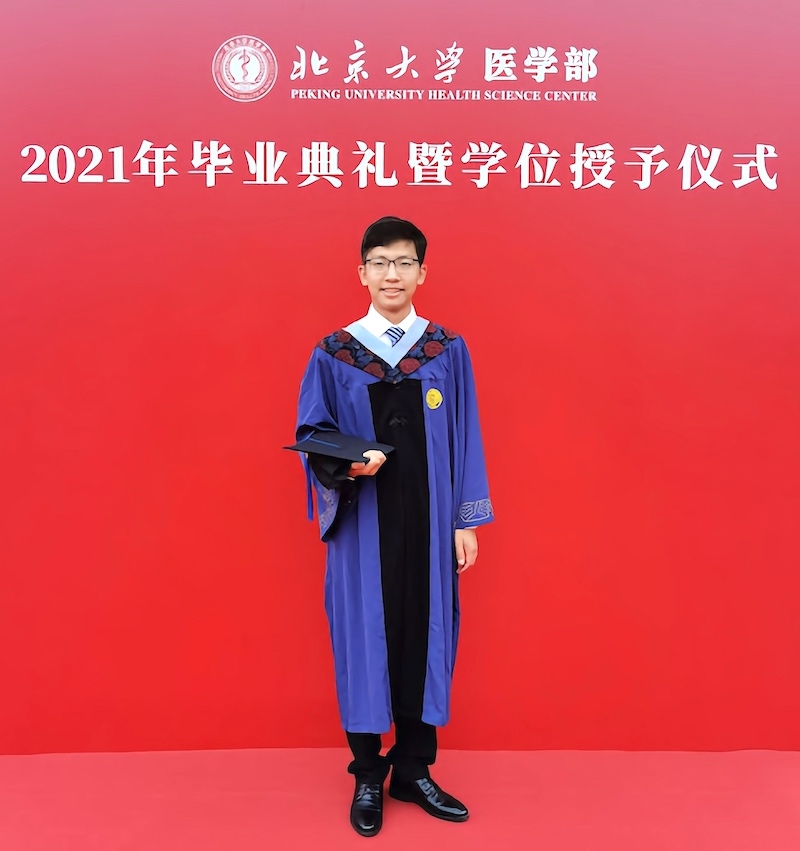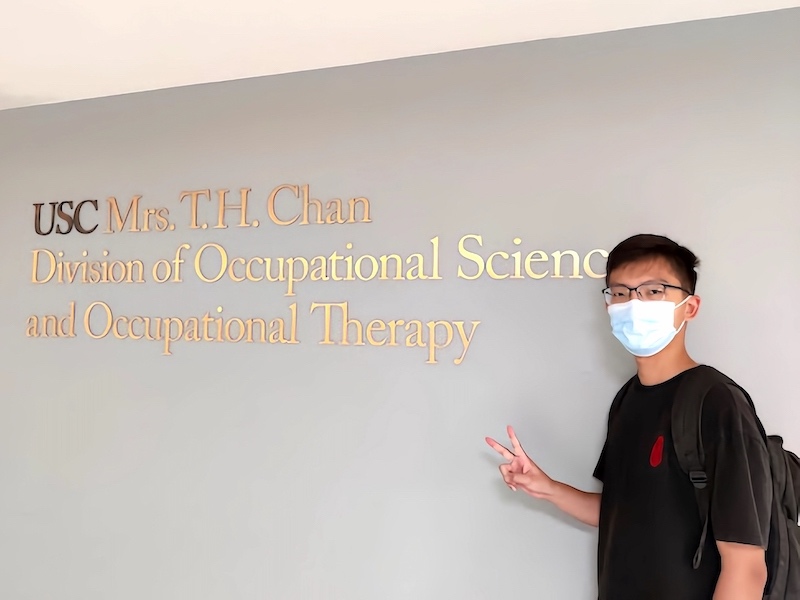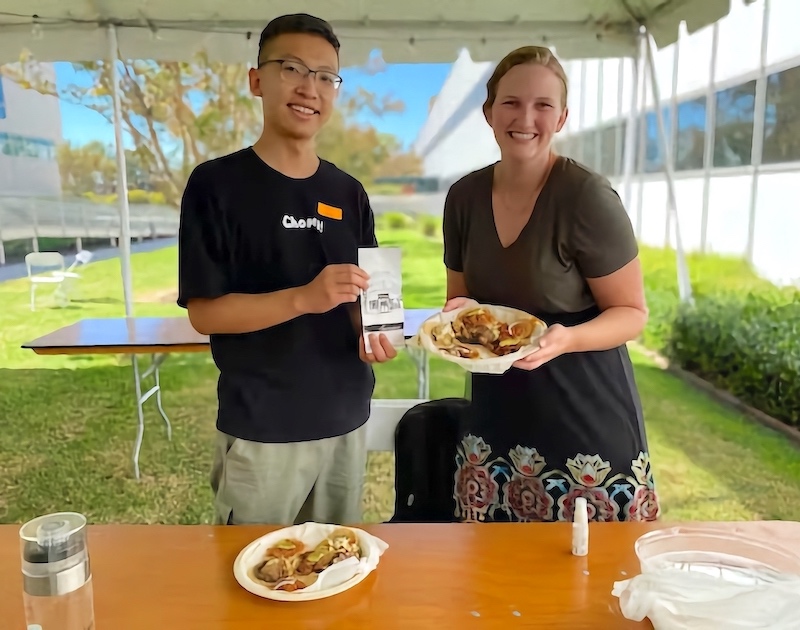A Turning Point of My Life: From PKUHSC to USC
October 22, 2021
by Global Initiatives Team
Classes Fieldwork International What are OS/OT?
By Chen Gong, OTD
Editors Michelle Plevack and Abraham Ramirez
Entry-Level Professional Master’s students
What made you interested in occupational therapy?
My story with occupational therapy began in 2018 when I was an intern therapist in the Department of Rehabilitation Medicine at The Sixth Affiliated Hospital of Sun Yat-sen University in Guangzhou. As a beginner in OT, I attached importance to function-oriented treatment. However, my instructor encouraged me that I should pay more attention to the patient’s real life. Once, on a whim, I used a guitar to engage a patient with dementia in a music activity. The patient was relieved from the tiredness and boredom of previous therapy sessions. I could see tears in her eyes that this activity was meaningful to her. This incident has completely changed my opinion about OT, and let me really understand the meaning of occupation. Later, because of my love for OT, I came to the dual-degree OT program between Peking University Health Science Center (PKUHSC) and USC to continue my studies as an OTD student.
Why did you choose to continue your education with the OTD?
During my two years at PKUHSC, I gained a more systematic understanding of OT theoretical knowledge and gradually found the current situation of OT promotion in China. In many general hospitals, OTs have not found their own optimal practice area. OTs are unable to establish their professional identity and carry out meaningful acts of therapy. I deeply feel the inadequacy of my own ability. I look forward to further improving my professional level and leadership, exploring the OT market, and leading the development of OT in China in the future. I believe that studying at USC Chan will help me to achieve my goals.

Master’s degree ceremony: Peking University, Beijing, China, Summer 2021
How has the transition from MSc in PKUHSC to OTD been?
China and the United States have very different cultural backgrounds. This ranges from the perspective of OT education, the way of communication between people, the atmosphere of class and work, and the pace of life here are all different from before. It has basically been like learning how to grow up and live again. Fortunately, I quickly adapted to the lifestyle and study context here. For the first semester, I am working with Dr. Emily Sopkin and Dr. Shawn Roll separately for pedagogy and research. Now I can actively act as a mentee.

Chen’s First photo with USC Chan Division, Fall 2021
Describe your experience of OT school at PKUHSC vs USC.
Studying OT in PKUHSC for two years was really a very good experience. We completed the Master’s courses required by USC, and the way of teaching at PKUHSC was similar to USC Chan’s classes. In addition to the courses, we all completed a certain research project and published a paper in Chinese core journals. Through this, I have special appreciation for my mentor, Professor Ninghua Wang and her support for my research work. I also really appreciate my instructors Dr. Jane Liu, Dr. Liguo Qian, Dr. Hui Wang, Dr. Lily Xu and Dr. Buwen Yao, who were all students of USC Chan, and their efforts to localize these OT courses. Studying OT at USC is exciting. I can feel leadership everywhere. This immersion allowed me to think about how to develop my leadership. The Chan Division has its own unique experience in pedagogy, research, and clinical practice. I am sure I can learn something different from what I learned in PKUHSC, especially in clinical practice.

Unforgettable lunch with Dr. Emily Sopkin, Fall 2021
What do you think about your OTD residency so far?
It’s great! My residency for the first semester is mainly about pedagogy and research.
For my pedagogy residency I am a teaching assistant for OT 440: Kinesiology, which was also my favorite class when I was a Master’s student at PKUHSC. I enjoy this job. I developed a good mentoring relationship with Dr. Sopkin. I try to be creative by sharing knowledge related to the course with my students to help them learn from different perspectives.
For research, I’m working in the Musculoskeletal Sonography and Occupational Performance (MSOP) laboratory. Now I am gradually getting involved in existing research in the lab, which makes me feel fulfilled. As Dr. Roll said, “I don’t think it’s that important for you to learn a particular skill. It’s more important to immerse yourself in the research environment and see how research works.” I couldn’t agree more.
What kind of OT do you want to be in the future? Your plans/goals after OTD graduation? Or how will you promote OT services in China?
Actually, I want to be an active OT, who is purposeful, has great leadership skills and knows how to promote OT effectively. I also hope that I will be good at several clinical skills, which will help me establish my professional identity.
I plan to work in the OT department of a general hospital, mainly engaged in the occupational therapy of musculoskeletal and neurological disorders of the upper limbs and hands, and also undertake part of the teaching work, e.g. combining what I learned here with China’s clinical context and then trying to establish a practical framework of occupation-based hand therapy education. As for research, I will try to design and lead research projects and apply for national funding.
⋯
Next by tag Classes ⟩ Fieldwork ⟩ International ⟩ What are OS/OT? ⟩
⋯





